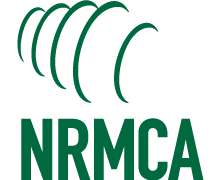
| Archive | nrmca.org | E-Store | Conferences & Events | Certifications | InFocus |
NRMCA Adopts the 2030 Challenge for Products In an effort to help concrete producers reduce their carbon footprint, NRMCA has signed on to the 2030 Challenge for Products. The 2030 Challenge for Products is a global challenge to specify and manufacture products that meet a carbon footprint of 30% below the product average through 2014 and subsequently improve on this reduction in the following years: 35% in 2015, 40% in 2020, 45% in 2025 and 50% in 2030. Issued by Architecture 2030, the 2030 Challenge for Products builds on the widely adopted original 2030 Challenge, which calls for the operation of all new buildings and major renovations to be carbon neutral by 2030.
In support of the challenge, NRMCA has become an EPD Program Operator to facilitate the development and verification of EPDs (Environmental Product Declarations) and establish industry baselines for concrete. EPDs are third-party verified (certified) reports published by product manufacturers that provide quality assured and comparable information regarding environmental performance of their products. NRMCA has also helped develop a Product Category Rule (PCR) that provides instructions on how to conduct and report EPDs.
NRMCA’s commitment to sustainability was outlined in a 2009 report titled NRMCA Sustainability Initiatives which provides a vision along with strategies and goals for lowering the environmental footprint of concrete and details research, education and measurement programs to help its members meet these goals. Further carbon footprint reduction strategies are being explored through the Massachusetts Institute of Technology (MIT) Concrete Sustainability Hub which was established in 2009 through generous funding from the RMC Research & Education Foundation. The MIT Concrete Sustainability Hub is exploring ways to reduce the carbon footprint of buildings and pavements through the use of advanced concrete building systems and through the development of innovative cements and concrete mixtures, improved manufacturing processes, use of alternative energy sources and enhanced transportation efficiency.
For more details, visit http://www.nrmca.org/sustainability, http://www.architecture2030.org/2030_challenge/products or NRMCA's Lionel Lemay at LLemay@nrmca.org or 847-918-7101.
|
|
|






